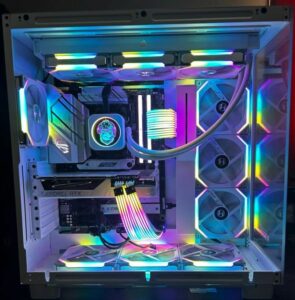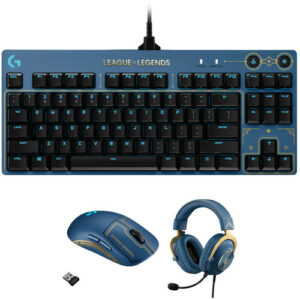How to Choose the Right PC Components for Your Gaming PC

Introduction
Building a gaming PC can be an exciting and rewarding experience. However, with so many options available, choosing the right PC components that will meet your gaming needs and deliver optimal performance is essential. In this article, we will guide you through the process of selecting the right components for your gaming PC, ensuring an enjoyable gaming experience every time. This article should help you understand how to choose the right PC components for your gaming PC.1. Determine Your Budget
Before delving into the world of PC components, it’s crucial to establish a realistic budget. First, decide how much you’ll spend on your gaming PC, which will influence your component choices and ensure you stay within your financial limits. Setting a budget from the beginning will help you prioritize your spending and make informed decisions. Do not forget to include the costs for your keyboard, mouse, headset, and monitor.2. Assess Your Gaming Needs
Consider the types of games you intend to play and their system requirements. Some games may require higher specifications than others, such as demanding graphics or processing power. By understanding your gaming needs, you can identify the components that will provide optimal performance and prevent overspending on unnecessary features. Please make a list of the games you plan to play and research their recommended system requirements to get a clear idea of what you need.3. Select the Right Processor (CPU)
The CPU is the brain of your gaming PC, so choosing the right one is vital. First, look for a processor that balances speed and price. Intel and AMD are two popular CPU manufacturers, each offering a range of models to suit various budgets and performance requirements. Be sure to research the benchmarks and reviews on different CPUs to find a CPU that matches your gaming needs. Consider factors such as the number of cores, cache size, and clock speed to ensure smooth gameplay and efficient multitasking.4. Choose the Appropriate Graphics Card (GPU)
A graphics card is crucial for delivering stunning visuals and smooth gameplay. Look for a GPU that can handle the graphics demands of your favorite games. Manufacturers like Nvidia and AMD offer a wide range of options with varying performance levels and price points. Consider your budget, desired resolution, and frame rates when selecting a graphics card. Look for reviews and benchmarks to determine which GPU offers the best performance in your price range.5. Opt for Sufficient Memory (RAM)
Having adequate RAM is essential for multitasking and running games smoothly. You will want to aim for at least 8GB of RAM, although 16GB is recommended for most gaming setups. The higher the RAM capacity, the better your PC will handle resource-intensive tasks. Ensure your motherboard supports the RAM speed and power you choose. Consider the DDR4 standard, which offers improved performance compared to DDR3.6. Storage Options: SSD vs. HDD
You should consider investing in a Solid State Drive (SSD) for speedy loading times and quick file transfers. Many feel that SSDs are faster and more reliable than traditional Hard Disk Drives (HDDs). While SSDs are more expensive, they provide a noticeable performance boost. Consider pairing a smaller SSD for your operating system and frequently played games with a larger HDD for additional storage capacity. This combination provides the best of both worlds, with fast boot times and ample storage space for your games and media files.7. Power Supply Unit (PSU) and Case
A reliable power supply unit is crucial to provide stable and sufficient power to your components. Choose a PSU from a reputable brand with a wattage suitable for your build. Consider the power requirements of your CPU and GPU to determine the appropriate wattage. Additionally, select a case that accommodates your chosen components and provides adequate airflow for cooling. Consider size, cable management, and aesthetics when deciding a case. Look for cases with good ventilation options and space for future upgrades.8. Research Motherboard Compatibility
The motherboard acts as the foundation of your gaming PC, connecting all the components. Ensure compatibility between the motherboard and other chosen components, like the CPU, RAM, and GPU. Consider factors like the socket type, RAM slots, expansion slots, and necessary ports to support your desired peripherals. Research different motherboard models and read user reviews to find a reliable and feature-rich option that fits your requirements.
